Chunghua Sports Arena was hot that night.
All 12,000 seats were sold out. The air conditioning was turned on full blast, but the heat emanated from sheer excitement.
It was eight o'clock, half an hour after the concert was scheduled to start, but there were still no signs of activity on the elaborate revolving stage in the center of the arena. The audience began rhythmically clapping and shouting, "Stevie! Stevie!" None of them noticed, but it was just then that a sealed container with Stevie inside was slid slowly through the work area and underneath the stage.
At 8:15 the arena's lights were doused, and the band's musicians, vocalists, and dancers jumped onstage and began playing. Only Stevie was nowhere to be seen. Just as every pair of eyes in the house was searching frantically to find him, a stream of light beamed down from the ceiling and spotlighted the man they had all been waiting for as he rose up slowly on a platform from beneath the stage, singing his "I'm the Man."
"This man is a wonder," Life magazine once said of him. Not only are his music and performing wonderful--even his stage entrance is wondrously planned and executed.
Sitting in the midst of three keyboard instruments and a harmonica, he played songs from every stage of his career, from tender ballads to hot funk, turning from one instrument to another as he skimmed across 25 years of music.
His first single, "Fingertips," soared to the top of the charts in 1963 when he was just thirteen. To sing it again 25 years later he uses a special electronic modulator that raises the pitch of his voice up an octave or so.
The voice modulator is only one of the items of special equipment that Stevie Wonder brings with him. So that audiences around the world can hear the same sound at concerts everywhere, he insists that suspension speakers, mixers, and even the steel bars that hold up his video projection screens be arranged for exactly as prescribed on a list drawn up by his agent. Ni Chung-hwa, the head of the booking agency that brought him to Taiwan, says the Stevie Wonder's concerts are known to those in the business as among the hardest to put on.
It really is a sensational show. Many world-famous pop music artists have included Taipei as a stop on their Asian tours in recent years, including Paul Young, Tina Turner, and the group Toto. But none of their concerts involved as much effort or expense to stage as his.
And of all the pop music stars who have performed in Taipei over the years, Stevie Wonder is without a doubt the biggest. Twenty-seven of his singles have made Billboard magazine's top ten, an achievement rivaled on the contemporary music only by Elvis Presley and the Beatles.
A performer of Stevie Wonder's stature should long ago have become habituated to applause, but the enthusiasm shown by his Taipei audiences surprised even him.
They followed him right along in every song, singing, clapping, and swaying in their seats, as he rocked his head back and forth to the rhythm, absorbed in his music. During a jazzy number in the middle of the show he stood up, improvised a melody, and invited the audience to sing along. They had trouble with the unfamiliar melody at first, but after repeating it several times, 12,000 voices rang out clearly, "Yeah, yeah, yeah" "la, "la, la." Stevie rocked his head in ecstasy.
In this joyous atmosphere Stevie served up renditions of famous hits of his like "You Are the Sunshine of My Life," "I Wish," and "Living for the City." But he made them wait to the very last for their two favorites: "I Just Called to Say I Love You" and "Part-time Lover."
"Do you ever wish for the phone to ring?" he asked, and the audience roared its answer. After "I Just Called" had them dancing in their seats, he asked, "Do you want to go home?"
"Not!" thundered out 12,000 voices.
Stevie said he would sing his last song and asked the audience to count down from ten.
"Ten, nine, eight. . ."
"No, no, I want to hear you say it in Chinese!" Everyone laughed and yelled out happily, "Shih, chiu, pa. . . "
"Do, do, do . . . do, do, dee, do, dee, do" he finally sang the song that's so popular with his younger fans here. "Part-time Lover" had them dancing on stage and off, their hands sore from clapping and voices hoarse from shouting.
When the last chords ended, Stevie and his band strode off to their changing room, but the audience stayed on their feet, cheering and shouting out his name.
The group that sponsored the concert knew that Stevie Wonder does not sing encores. So they were as much surprised as delighted when he responded to the audience's fervor after about five minutes by bringing the band back onstage for an encore, only the second one he has ever given. The first was in New Zealand several years ago, when he broke precedent after fifteen minutes of solid applause.
Stevie Wonder never gives encores, but he gave one in Taipei. Judging by the all-out cooperation provided by his sponsors and the enthusiastic response he received from his audiences, other world-class pop music stars should be giving encores in Taiwan soon, too.
[Picture Caption]
They had bought his records and listened to his songs for years, but they had never seen him perform in person. That night at Taipei's Chunghua Sports Arena, Stevie Wonder's Chinese fans finally got their chance.
"It's great to be in Taipei!" Stevie told reporters at a press conference. The device is a language-learning machine that he donated to charity.
(Above ) Stevie Wonder met with Mrs. Yu Kuo-hwa, the wife of the Premier. He gave Mrs. Yu a check for NT$35,000 to donate to the Chiming School for the Blind, and she gave him a souvenir cloisonne apple in thanks for concern. (Below) When he visited the school he was presented with a garland of flowers by a blind student Liu Shu-chuan.
A giant billboard announced the big event to pop music fans.
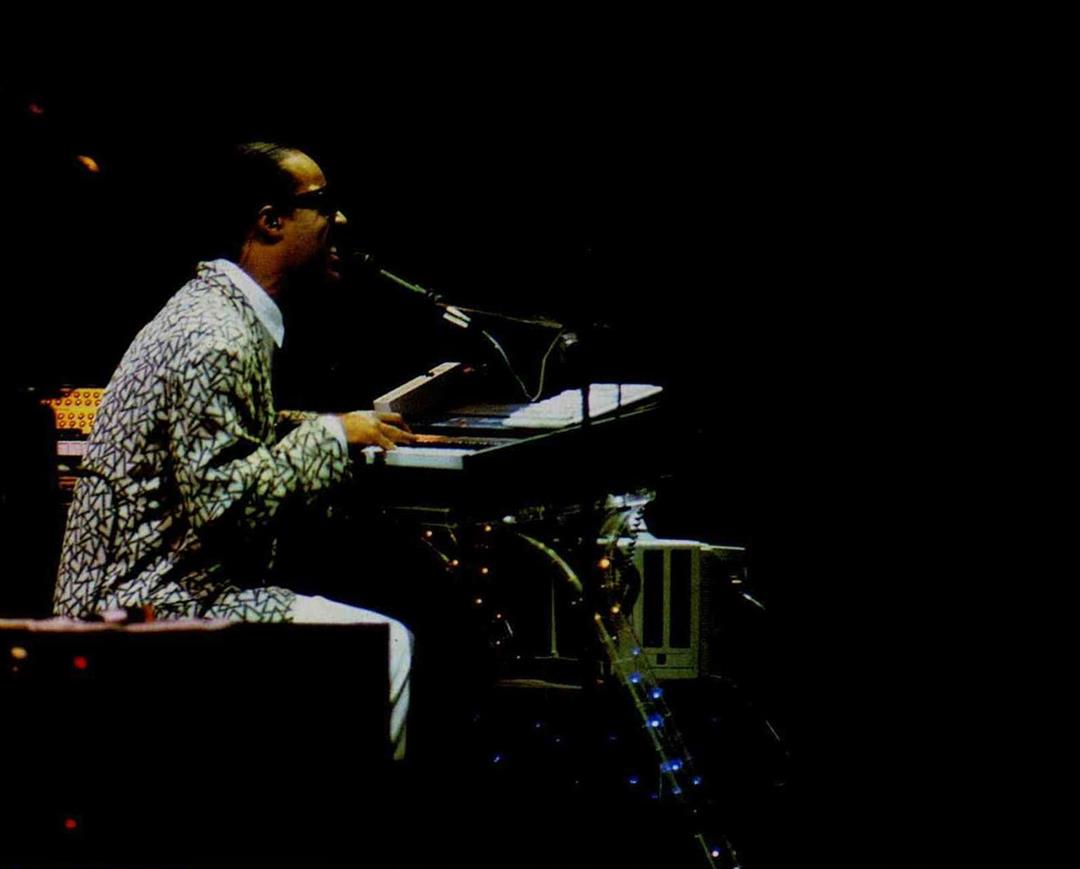
They had bought his records and listened to his songs for years, but they had never seen him perform in person. That night at Taipei's Chunghua Sports Arena, Stevie Wonder's Chinese fans finally got their chance.
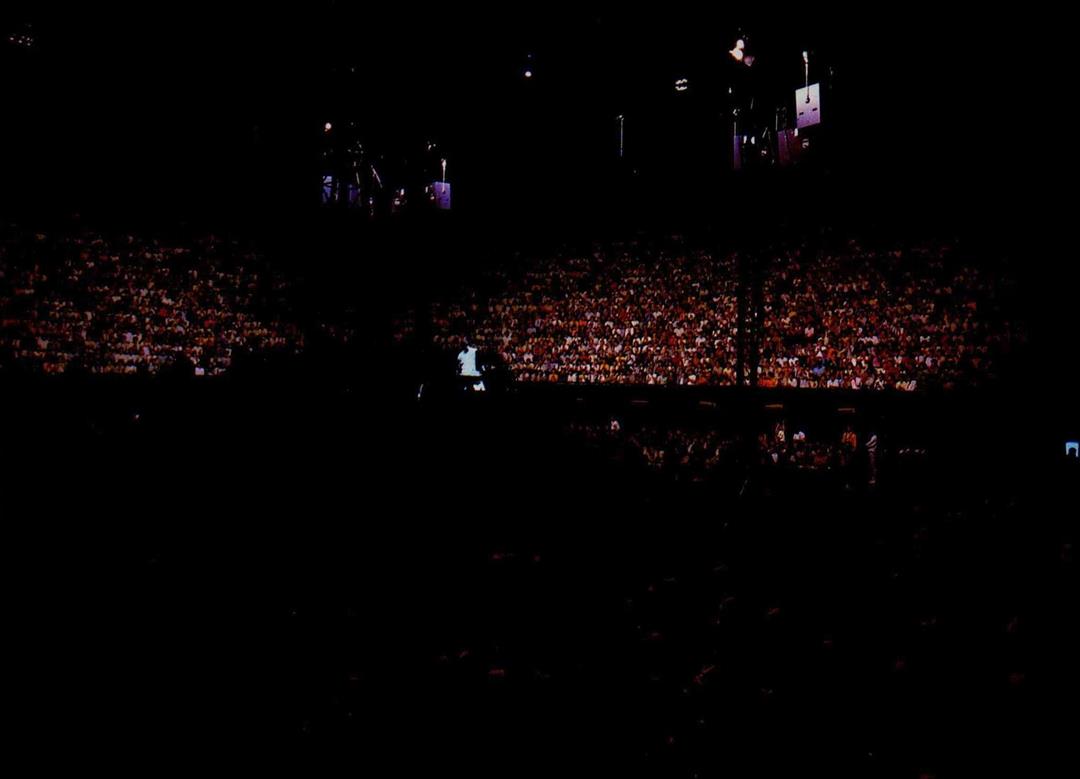
They had bought his records and listened to his songs for years, but they had never seen him perform in person. That night at Taipei's Chunghua Sports Arena, Stevie Wonder's Chinese fans finally got their chance.
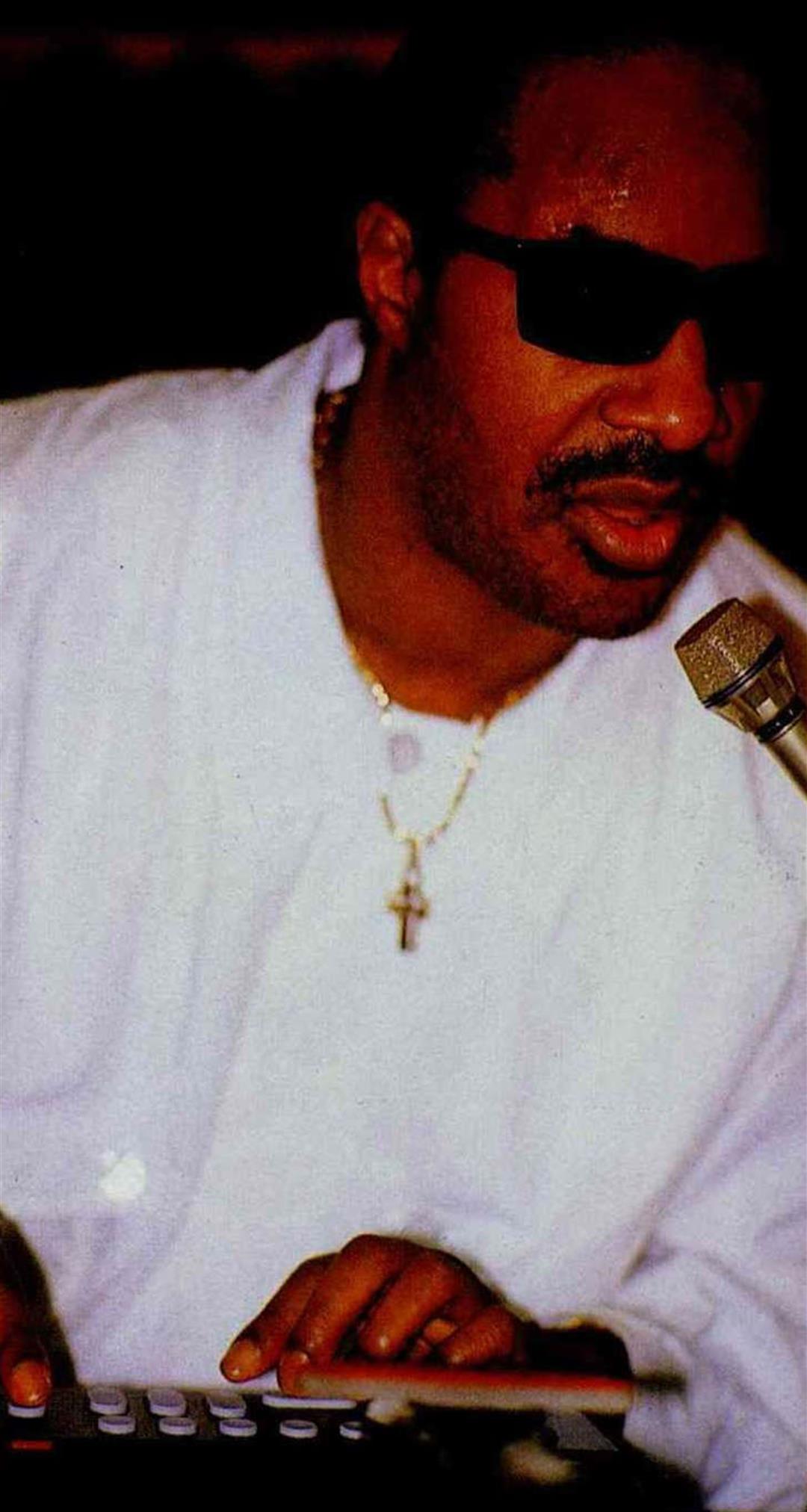
A giant billboard announced the big event to pop music fans.

A giant billboard announced the big event to pop music fans.
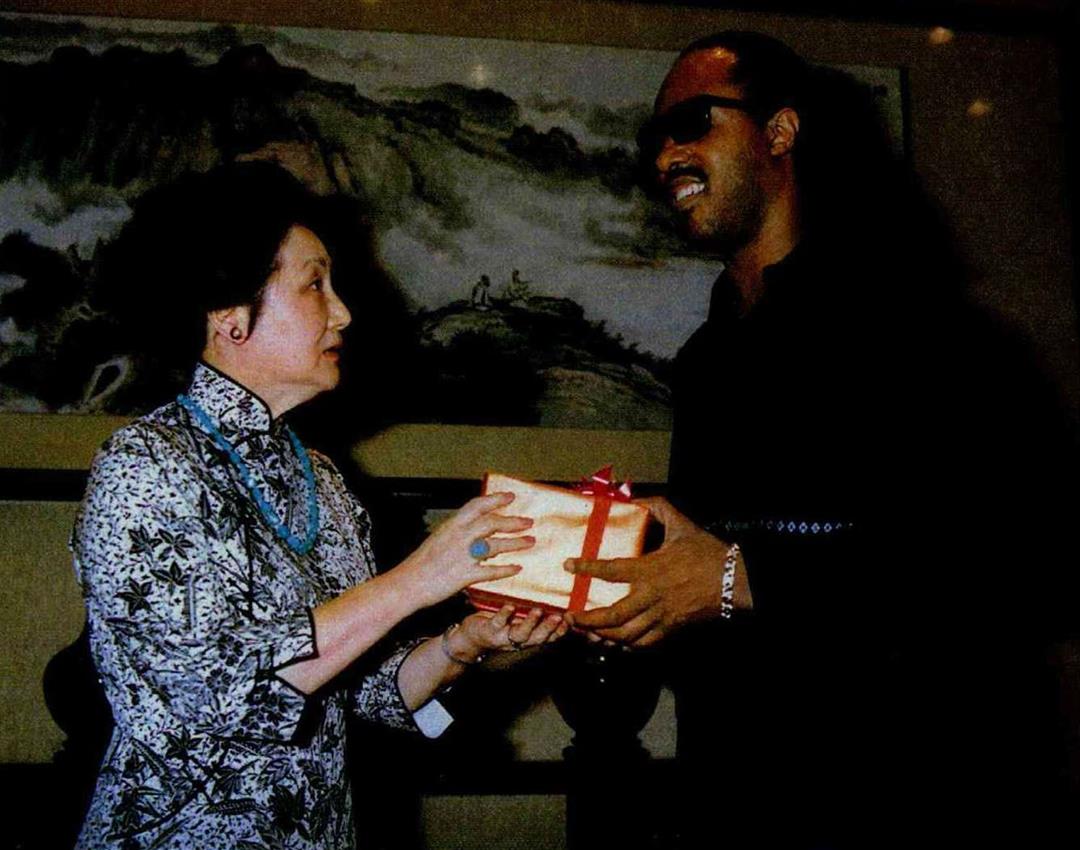
(Above ) Stevie Wonder met with Mrs. Yu Kuo-hwa, the wife of the Premier. He gave Mrs. Yu a check for NT$35,000 to donate to the Chiming School for the Blind, and she gave him a souvenir cloisonne apple in thanks for concern.
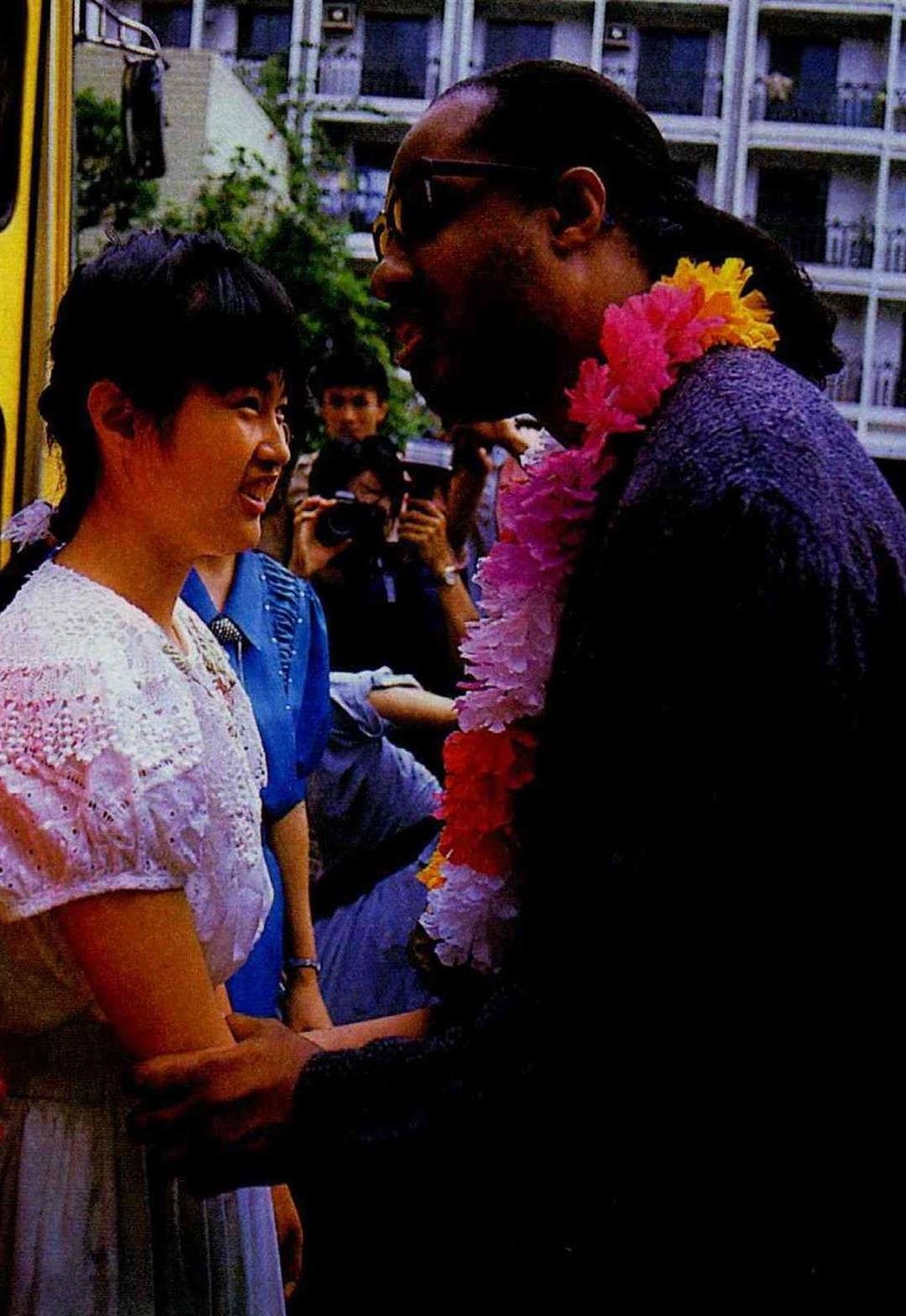
(Below) When he visited the school he was presented with a garland of flowers by a blind student Liu Shu-chuan.